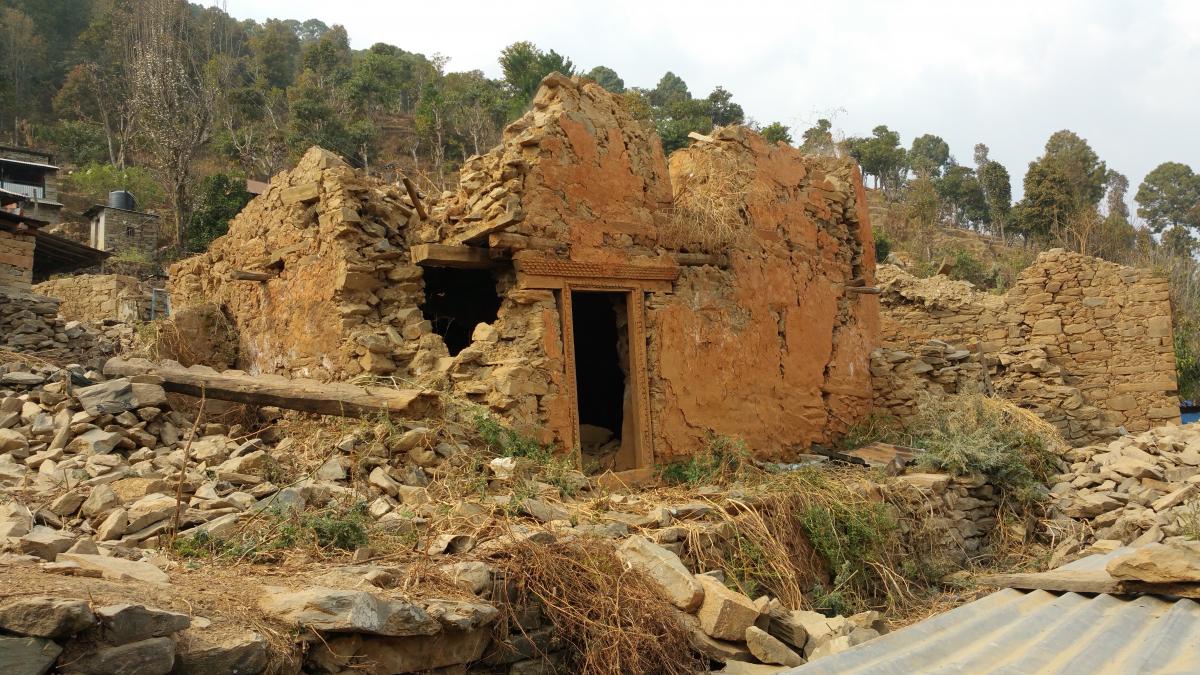When an earthquake struck his community in April 2015, however, 50 percent of the homes that Ghale had built were destroyed and an additional 40 percent were so damaged that they were unsafe to live in.
This wasn’t unique to Ghale. More than 500,000 homes were completely destroyed and 270,000 were damaged in last year’s earthquake in Nepal.
“It happened because of a lack of technical knowledge,” Ghale said, noting that many homeowners could not afford durable materials and masons like him were not educated in how to build earthquake-resistant houses.
Thanks to your support, that is changing.
Following the earthquake, World Renew hired a structural engineer as its housing construction manager who also designed plans for permanent homes that are earthquake resistant. With these plans in place, Ghale and 108 other masons were selected from their communities to receive construction training from Build Change between March and April 2016. They discussed misconceptions and faulty knowledge that they had held and learned new techniques to build stronger homes that can withstand future earthquakes.
One common misunderstanding before the workshop was that stone houses could not be earthquake-resistant. Many people felt trapped because they could not afford more expensive construction materials such as brick or cement block, but worried that they were putting their families’ lives at risk in a stone home.
"We want communities to become stronger and more resilient, able to withstand the impact of future disasters."
Faced with this situation, people like Ghale began to feel hopeless. However, after the workshops, Ghale and others were thankful to learn that stone can be used to build earthquake-resistant buildings if it is used appropriately with the right rebar supports and banding structures.
After receiving seven days of mason training, Ghale said that he feels better equipped to construct stronger and more durable houses.
“When World Renew responds to disasters, we don’t want to just provide short-term handouts to disaster survivors,” said Grace Wiebe, World Renew’s Senior Project Manager in Nepal. “We also want to help people build back better. We want communities to become stronger and more resilient, able to withstand the impact of future disasters. If we can do this while also building up local leaders, and giving masons marketable skills for the future, it’s more sustainable.”
Now that masons like Ghale have been trained, World Renew will begin constructing permanent homes in three communities in the Manakamana Village Development Committee in the Nuwakot region of Nepal. Please continue to keep this ministry in your prayers.
To donate to World Renew’s Nepal Earthquake Response, please click the link above.

